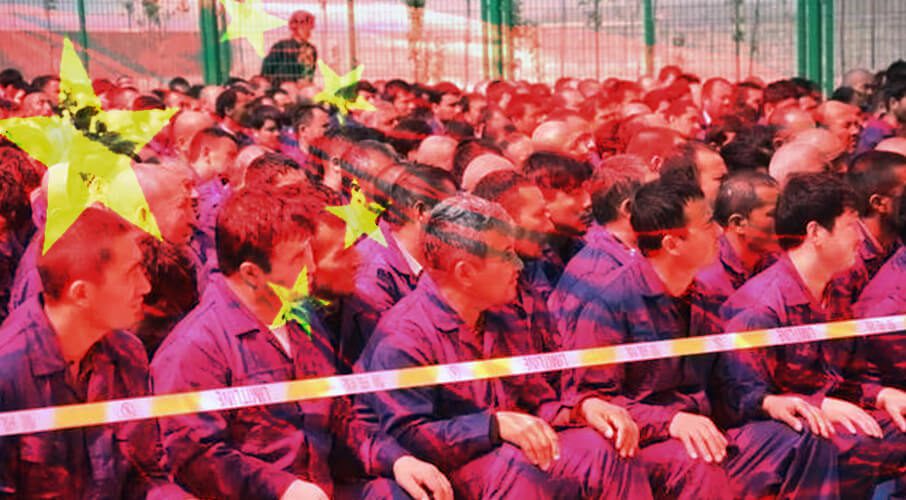 This article originally appeared in the Ottawa Citizen.
This article originally appeared in the Ottawa Citizen.
By Sarah Teich and Mehmet Tohti, May 11, 2022
The United Nations is finally gaining access to the Uyghur region. Members of Michelle Bachelet’s office are already on the ground in China, and the High Commissioner for Human Rights herself will arrive sometime later this month. The visit comes following many years of negotiations with Beijing, as Bachelet has been trying to gain access to the region since 2018. The fact that a visit is finally happening should be a good thing — but it is not.
Meaningful access to a region where atrocity crimes are occurring is pivotal. Meaningful access can shed light on the details of what is occurring; concrete data and evidence can be collected; and witnesses can be interviewed. Victims and victim communities can feel heard, believed and respected.
However, access is not the same thing as unfettered or meaningful access. When access is limited, or when victims and victim communities are neither heard nor respected, a visit to a battered region can do more harm than good. For access to be meaningful, it should be unfettered and independent.
Michelle Bachelet’s visit to the Uyghur region will provide her with access, but there is cause for concern that her access will be limited. She has also proceeded with planning this visit in a way that has left many Uyghurs around the world feeling ignored and disrespected.
Repeated requests by prominent Uyghur activists for meetings with Bachelet, in advance of her visit to the Uyghur region, have remained unanswered. Now, some in the Uyghur diaspora in Europe are planning a May 15 protest in Geneva, to make their voices heard.
Bachelet did not disclose the terms of her agreement with China. Citing unidentified sources, the South China Morning Post announced that Bachelet’s visit was approved on condition that it be “friendly” in nature and not framed as investigative. They revealed that Beijing pressured Bachelet’s office to delay publishing the OHCHR report on grave human rights violations in Xinjiang — although the report has been ready since last August, and human rights groups have been urging its release.
According to World Uyghur Congress President Dolkun Isa, previous visits to the Uyghur region have been stage-managed by Chinese officials. According to China researcher Adrian Zenz, the Chinese government will put up a façade for Bachelet’s visit and ensure that no one she meets with says anything that would harm Chinese interests. He described it to Radio Free Asia as “probably not … genuine field work” and a visit that “the Chinese will use (to) whitewash,” and that is exactly right. Bachelet’s visit will likely be tightly controlled, and the Chinese government will likely then try to exploit that to convince the world that everything is OK in the Uyghur region.
Authoritarians concealing evidence of crimes is one of the oldest tricks in the books. The Nazis did the same with Terezin Concentration Camp during The Holocaust. Facing pressure from Denmark, the Nazis invited the Danish Red Cross, the Danish foreign minister and the International Red Cross to inspect Terezin Concentration Camp in 1944. The visit was staged; it is now known as “one of the greatest deceptive ploys used by the Nazis during World War II,” according to the Czech Center Museum Houston. Prior to the visit, the Nazis had deported 7,500 young men and women to Auschwitz to make the camp less crowded; prisoners were forced to pave streets and repair housing; and Nazis sent their own people as spies to mingle with Jewish people, to give the illusion of peaceful coexistence. The visit was so successful that the Nazis made a propaganda film about it, in the summer of 1944 — two weeks before sending all of its participants to Auschwitz.
This is why meaningful access — access that is independent and unfettered — is so critical. And this is why limited access can sometimes do more harm than good.
The Chinese government approved Bachelet’s visit in March and scheduled it for May, giving itself two months to conceal evidence of crimes and transform one or two camps into “model” camps, as the Nazis did with Terezin. If that happens, China may exploit the visit to gain a public relations win. The United Nations human rights office should not allow itself to be used in that way.
Conflicting statements from China, the lack of transparency surrounding the conditions set for this trip, and the uncertainty surrounding the release of the OHCHR report have already shadowed the credibility of this trip. Bachelet should have independent and unfettered access; her office should release the OHCHR report without further delay; and she should work with victims and communities to promote accountability and justice for atrocities committed in the Uyghur region. As a country that leads on human rights worldwide, Canada should urge Bachelet along these lines as well.
Sarah Teich is an international human rights lawyer based in Toronto. Mehmet Tohti is the Executive Director of the Ottawa-based Uyghur Rights Advocacy Project and a prominent Uyghur activist.





